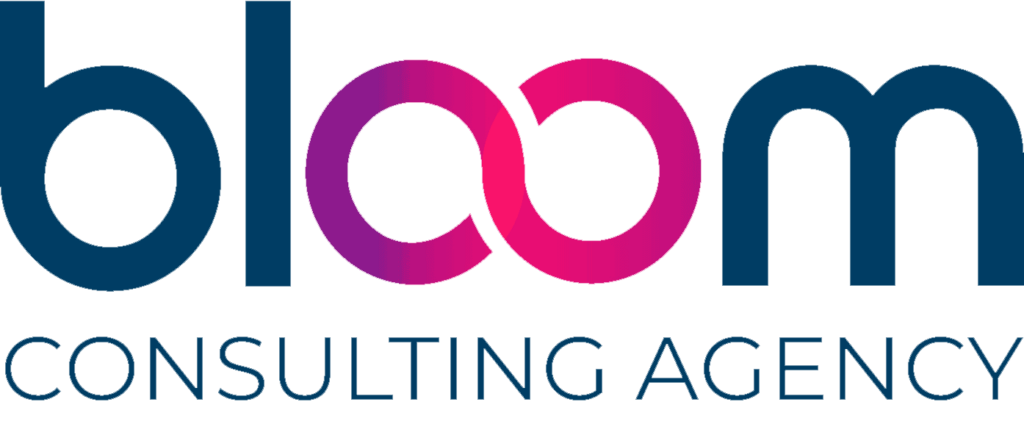Table of Contents
What Is Behavioral Healthcare Marketing? The Complete Guide for Mental Health Practices in 2025
Behavioral healthcare marketing encompasses all promotional activities designed to connect mental health professionals with potential patients. This specialized approach involves building brand awareness, establishing trust, and educating communities about available services. Practitioners must balance professional credibility with accessible communication to reach their target audience effectively.
The primary objective focuses on creating meaningful connections between providers and those seeking help. Successful campaigns address common misconceptions about mental health treatment while demonstrating expertise. Effective marketing maintains patient confidentiality and professional boundaries throughout all promotional activities.
Digital transformation has revolutionized how behavioral health practices reach their target audiences. Modern marketing strategies now incorporate website optimization, social media engagement, and content marketing as core components. These digital tools enable practices to provide valuable resources while building professional relationships with potential patients.
The Critical Importance of Marketing in Behavioral Healthcare
Mental health stigma continues to prevent many individuals from seeking necessary treatment. This stigma creates barriers that effective marketing can help overcome through thoughtful promotional strategies. These approaches serve both business growth and public health objectives by reducing shame and increasing awareness.
When individuals finally decide to seek mental health support, they often don’t know where to turn. The abundance of options can feel overwhelming during vulnerable moments, making clear marketing messages essential. It is important to have marketing that works for your clinic. Well-crafted communications help guide potential patients toward appropriate care providers when they need support most.
Trust serves as the foundation of all therapeutic relationships. Marketing activities provide opportunities to demonstrate competence, compassion, and reliability to prospective patients. Consistent messaging across all platforms reinforces professional credibility and builds patient confidence in your services.
Effective behavioral healthcare marketing also educates communities about mental health conditions and treatment options. Educational content reduces misinformation while promoting mental health awareness throughout the community. This dual approach allows marketing to serve both commercial and social responsibility purposes simultaneously.
Essential Components of Successful Behavioral Healthcare Marketing
Website Optimization and User Experience
Your practice website serves as the digital front door for potential patients. First impressions significantly impact visitor behavior and conversion rates, making professional design and intuitive navigation absolutely essential for success.
Website content must clearly communicate your services, approach, and areas of expertise to visitors. Potential patients should easily find contact information, appointment scheduling options, and insurance details without searching through multiple pages. Mobile responsiveness ensures accessibility across all devices and platforms for today’s smartphone-driven audience.
Loading speed directly affects both user experience and search engine rankings in meaningful ways. Optimized images, clean code, and reliable hosting improve website performance while reducing bounce rates. Secure connections (HTTPS) build trust while protecting sensitive patient information from potential security threats.
Search Engine Optimization (SEO) Strategies
SEO optimization helps potential patients discover your practice when searching for mental health services. Moreover, local SEO ensures visibility for geographically relevant searches. Therefore, consistent NAP (Name, Address, Phone) information across directories improves local rankings.
Keyword research identifies terms your target audience uses when seeking behavioral health services. Additionally, long-tail keywords often convert better than broad, competitive terms. Furthermore, natural keyword integration maintains readability while improving search visibility.
Content optimization involves strategic placement of relevant keywords throughout website pages. Similarly, meta descriptions, title tags, and header structures signal content relevance to search engines. Moreover, regular content updates demonstrate website activity and ongoing value.
Content Marketing Excellence
High-quality content establishes thought leadership while providing value to potential patients seeking mental health resources. Educational articles address common mental health questions and concerns that prospective patients frequently research online. Consistent publishing schedules build audience expectations and engagement patterns that keep readers returning for more information.
Blog posts should focus on patient needs rather than promotional messages to maintain credibility. Addressing frequently asked questions builds trust and demonstrates expertise in specific treatment areas. Content strategy should balance educational value with subtle service promotion to avoid appearing overly commercial.
Video content increasingly dominates digital marketing landscapes across all industries, including healthcare. Behavioral health practices benefit from incorporating video testimonials, educational content, and practice introductions into their marketing mix. Video content often achieves higher engagement rates than text-only posts while helping potential patients connect with providers personally.
Social Media Marketing Approach
Social media platforms provide opportunities to connect with communities while reducing mental health stigma. However, behavioral health practices must maintain professional boundaries and patient confidentiality at all times. Social media strategies require careful planning and consistent monitoring to remain compliant and effective.
Educational posts, mental health awareness campaigns, and community resources perform well on social platforms. Sharing relevant articles and research findings positions practices as reliable information sources within the community. Consistent posting schedules maintain audience engagement and visibility across different platforms.
Patient privacy remains paramount in all social media activities. Practices should never share patient information or treatment details under any circumstances. Instead, generic testimonials and educational content provide value without compromising confidentiality or violating privacy regulations.
Advanced Behavioral Healthcare Marketing Strategies
Email Marketing Campaigns
Email marketing nurtures existing relationships while maintaining regular contact with potential patients. Segmented email lists enable personalized messaging for different audience groups based on their interests and needs. Targeted campaigns achieve higher open rates and conversion rates than generic mass mailings.
Newsletter content should provide valuable mental health resources and practice updates to subscribers. Appointment reminders, seasonal mental health tips, and community events maintain engagement throughout the year. Automated email sequences can guide potential patients through decision-making processes at their own pace.
Compliance with healthcare regulations remains essential in all email marketing activities. Practices must obtain proper consent and provide clear unsubscribe options to respect recipient preferences. Secure email systems protect patient information and maintain professional standards required by healthcare regulations.
Reputation Management Systems
Online reviews significantly influence potential patient decisions when choosing healthcare providers. Positive reviews build credibility while negative reviews can damage practice reputation and patient trust. Proactive reputation management strategies are absolutely essential for success in today’s digital healthcare landscape.
Encouraging satisfied patients to share positive reviews requires tactful approaches that respect privacy and maintain professional boundaries. Responding professionally to all reviews demonstrates commitment to patient satisfaction and continuous improvement. Addressing concerns publicly shows transparency and accountability while reassuring potential patients about your practice standards.
Review monitoring systems alert practices to new feedback across multiple platforms including Google, Yelp, and healthcare-specific sites. Timely responses prevent small issues from escalating into larger problems that could harm your reputation. Consistent monitoring demonstrates professional dedication to patient experience and service quality improvement.
Professional Networking Strategies
Building relationships with other healthcare providers creates valuable referral networks that benefit all parties involved. Partnerships with primary care physicians, hospitals, and community organizations expand reach within the local healthcare ecosystem. Networking activities should focus on mutual benefit and professional collaboration rather than one-sided promotion.
Professional associations provide networking opportunities while demonstrating commitment to industry standards and best practices. Conference attendance, continuing education, and certification programs build credibility within the behavioral health community. Active participation in professional communities enhances reputation and visibility among peers and potential referral sources.
Community involvement demonstrates commitment to local mental health resources and support systems beyond your practice. Speaking engagements, workshops, and educational events position practices as community leaders and trusted resources. Strategic community participation supports both marketing objectives and social responsibility goals simultaneously.
Measuring Behavioral Healthcare Marketing Success
Key Performance Indicators (KPIs)
Building relationships with other healthcare providers creates valuable referral networks that benefit all parties involved. Partnerships with primary care physicians, hospitals, and community organizations expand reach within the local healthcare ecosystem. Networking activities should focus on mutual benefit and professional collaboration rather than one-sided promotion.
Professional associations provide networking opportunities while demonstrating commitment to industry standards and best practices. Conference attendance, continuing education, and certification programs build credibility within the behavioral health community. Active participation in professional communities enhances reputation and visibility among peers and potential referral sources.
Community involvement demonstrates commitment to local mental health resources and support systems beyond your practice. Speaking engagements, workshops, and educational events position practices as community leaders and trusted resources. Strategic community participation supports both marketing objectives and social responsibility goals simultaneously.
Analytics and Reporting Systems
Google Analytics provides detailed insights into website visitor behavior and conversion patterns. Additionally, social media analytics reveal audience engagement and content performance. Moreover, email marketing platforms track open rates, click-through rates, and conversion metrics.
Regular reporting schedules ensure consistent monitoring and timely adjustments to marketing strategies. Furthermore, monthly reviews identify trends and opportunities for optimization. Therefore, systematic analysis supports continuous improvement and strategic refinement.
Competitive analysis helps practices understand market positioning and identify differentiation opportunities. Additionally, monitoring competitor activities reveals industry trends and best practices. Consequently, regular competitive research informs strategic planning and tactical adjustments.
Compliance and Ethical Considerations in Behavioral Healthcare Marketing
HIPAA Compliance Requirements
Patient privacy protection remains the highest priority in all behavioral healthcare marketing activities. Additionally, HIPAA regulations strictly govern the use and disclosure of protected health information. Therefore, marketing strategies must incorporate comprehensive privacy safeguards and compliance measures.
Marketing materials should never reference specific patients or treatment details without explicit written consent. Moreover, generic testimonials and stock photography protect patient identities while maintaining marketing effectiveness. Furthermore, staff training ensures consistent compliance across all marketing channels.
Social media policies must address patient confidentiality, professional boundaries, and appropriate content guidelines. Additionally, employee social media guidelines prevent inadvertent violations and maintain professional standards. Therefore, comprehensive policies protect both practices and patients.
Professional Ethics Standards
Marketing messages must accurately represent services, qualifications, and treatment outcomes without misleading potential patients. Additionally, avoiding unrealistic promises or guaranteed results maintains professional integrity. Moreover, transparent communication builds trust while protecting professional reputation.
Professional licensing boards often regulate healthcare marketing activities and promotional claims. Consequently, practices should review applicable regulations and maintain compliance documentation. Furthermore, consulting with healthcare attorneys provides additional protection and guidance.
Maintaining professional boundaries in marketing activities protects both providers and patients from inappropriate relationships. Additionally, clear policies regarding patient contact and communication channels prevent boundary violations. Therefore, ethical guidelines should govern all marketing interactions.
Florida-Specific Behavioral Healthcare Marketing Considerations
Local Market Dynamics
Florida’s diverse population requires culturally sensitive marketing approaches that acknowledge different backgrounds and languages spoken throughout the state. Seasonal population fluctuations affect marketing timing and messaging strategies, particularly during winter months when northern residents arrive. Local market research informs effective campaign development and implementation tailored to specific regional needs.
Insurance networks and reimbursement policies significantly impact patient decision-making processes in Florida’s complex healthcare system. Transparent insurance information and financial policies build trust with potential patients who may be unfamiliar with local coverage options. Clear billing practices reduce barriers to treatment access while helping patients understand their financial responsibilities upfront.
Florida’s competitive healthcare landscape requires differentiated positioning and unique value propositions that set practices apart. Specialization in specific conditions or treatment modalities can create competitive advantages in saturated markets. Strategic positioning helps practices stand out in crowded markets by highlighting unique expertise and patient care approaches.
Regulatory Environment
Florida licensing requirements and regulations may affect marketing claims and promotional activities for behavioral health practices. State-specific privacy laws and professional standards must be considered in campaign development to ensure full compliance. Regular compliance reviews ensure ongoing adherence to applicable regulations while protecting practices from potential legal issues.
Community mental health initiatives and public health campaigns provide collaboration opportunities for behavioral health practices across Florida. Partnerships with state and local organizations demonstrate community commitment while expanding professional networks. Participating in public health efforts enhances professional reputation and visibility within the broader healthcare community.
Frequently Asked Questions About Behavioral Healthcare Marketing
General Marketing Questions
What makes behavioral healthcare marketing different from other medical marketing? Behavioral healthcare marketing requires greater sensitivity to stigma, privacy concerns, and patient vulnerability. Additionally, mental health marketing must address unique barriers including shame, fear of judgment, and misconceptions about treatment. Therefore, successful campaigns combine professional credibility with compassionate messaging.
How long does it take to see results from behavioral healthcare marketing efforts? Marketing results typically begin appearing within 3-6 months for digital strategies, while brand building requires 6-12 months. Moreover, SEO improvements may take 6-12 months to show significant impact. Furthermore, consistent effort and patience are essential for long-term marketing success.
What budget should behavioral health practices allocate for marketing? Most successful practices invest 5-10% of gross revenue in marketing activities. Additionally, newer practices may require higher initial investments to establish market presence. Therefore, budget allocation should reflect growth objectives and competitive landscape considerations.
How can small behavioral health practices compete with larger organizations? Small practices can leverage personalized service, specialized expertise, and community connections to compete effectively. Moreover, digital marketing levels the playing field by providing affordable reach and targeting options. Furthermore, authentic messaging and patient relationships often outweigh marketing budgets.
Digital Marketing Questions
Which social media platforms work best for behavioral healthcare marketing? Facebook and LinkedIn typically provide the best results for behavioral health practices. Additionally, Instagram works well for younger demographics and visual content. However, platform selection should align with target audience preferences and content strategy capabilities.
How often should behavioral health practices post on social media? Consistent posting schedules typically perform better than irregular bursts of activity. Moreover, 3-5 posts per week on Facebook and daily posts on LinkedIn often achieve good engagement. Therefore, sustainable posting schedules should match available resources and content creation capabilities.
What type of content performs best for behavioral health practices? Educational content addressing common mental health questions performs exceptionally well across all platforms. Additionally, mental health awareness posts and community resources generate strong engagement. Furthermore, behind-the-scenes content humanizes practices while maintaining professional boundaries.
How important is video content for behavioral healthcare marketing? Video content increasingly dominates digital marketing across all industries, including healthcare. Moreover, educational videos, practice introductions, and patient testimonials (with permission) build trust effectively. Therefore, incorporating video content should be a priority for modern marketing strategies.
SEO and Website Questions
What keywords should behavioral health practices target? Local keywords combining location with services (e.g., “anxiety therapy Miami”) often convert well. Additionally, long-tail keywords addressing specific conditions or concerns capture motivated searchers. Furthermore, symptom-based keywords help reach people in crisis situations.
How important is local SEO for behavioral health practices? Local SEO is absolutely critical since most patients prefer nearby providers for regular appointments. Moreover, local search results often display prominently for healthcare-related queries. Therefore, optimized Google My Business profiles and local citations are essential.
What makes a good behavioral healthcare website? Effective websites combine professional design with easy navigation and clear service descriptions. Additionally, online appointment scheduling, insurance information, and provider credentials build trust. Furthermore, mobile optimization ensures accessibility across all devices.
How can behavioral health practices improve their Google rankings? Regular content creation, local citation building, and positive review generation improve search rankings over time. Moreover, technical SEO factors like page speed and mobile optimization affect rankings. Therefore, comprehensive SEO strategies address multiple ranking factors simultaneously.
Compliance and Ethics Questions
What HIPAA considerations apply to behavioral healthcare marketing? All marketing activities must protect patient privacy and avoid unauthorized disclosure of health information. Additionally, patient testimonials require explicit written consent and careful handling. Therefore, comprehensive HIPAA training and policies are essential for marketing teams.
Can behavioral health practices use patient success stories in marketing? Patient stories can be used with proper written consent and de-identification procedures. However, many practices prefer generic testimonials or stock photography to avoid privacy risks. Furthermore, consulting healthcare attorneys provides guidance on compliant testimonial usage.
What claims can behavioral health practices make in their marketing? Marketing claims must be truthful, substantiated, and avoid guaranteeing specific treatment outcomes. Additionally, professional qualifications and experience should be accurately represented. Therefore, conservative, factual claims protect practices from regulatory issues.
ROI and Measurement Questions
How do behavioral health practices measure marketing ROI? Tracking new patient acquisitions, appointment bookings, and revenue attribution provides ROI measurements. Additionally, patient lifetime value calculations help evaluate long-term marketing effectiveness. Therefore, comprehensive tracking systems enable accurate ROI analysis.
What marketing channels provide the best ROI for behavioral health practices? Referral programs and local SEO typically provide excellent ROI for established practices. Moreover, content marketing and email campaigns offer cost-effective patient engagement. However, optimal channel mix varies based on practice size, location, and specialization.
How can practices track marketing effectiveness across multiple channels? Integrated analytics platforms, unique phone numbers, and source tracking forms help attribute results to specific channels. Additionally, patient intake forms should ask how patients found the practice. Therefore, systematic tracking procedures enable accurate channel performance evaluation.
Why Choose Bloom Consulting for Your Behavioral Healthcare Marketing Needs
Bloom Consulting specializes exclusively in behavioral healthcare marketing throughout South Florida. Additionally, our team understands the unique challenges and opportunities facing mental health practices. Therefore, we develop customized strategies that drive results while maintaining professional integrity.
Our comprehensive approach combines digital marketing expertise with healthcare industry knowledge and regulatory compliance understanding. Moreover, we focus on measurable outcomes including increased patient appointments, improved online visibility, and enhanced community reputation. Furthermore, our local market expertise provides valuable insights for Florida-based practices.
We understand that every behavioral health practice has unique goals, target audiences, and competitive challenges. Consequently, our strategies are tailored to each client’s specific needs and market position. Additionally, we provide ongoing support, analytics reporting, and strategy refinement to ensure continued success.
National Recovery Month in September and Suicide Prevention Awareness Month highlight the critical importance of accessible mental health services. Therefore, effective marketing connects those in need with appropriate care providers. Furthermore, Bloom Consulting is committed to supporting behavioral health practices in serving their communities effectively.
Get Started with Professional Behavioral Healthcare Marketing Today
Ready to transform your behavioral health practice marketing and reach more patients in need? Contact Bloom Consulting today to discuss your marketing goals and discover how our specialized expertise can drive sustainable growth for your practice.
Our team is eager to review your current marketing efforts and develop a comprehensive strategy for future success. Whether you’re launching a new practice or looking to expand your existing patient base, we have the tools and expertise to help you achieve your objectives.
Don’t let potential patients struggle to find your services when they need help most. Partner with Bloom Consulting and start building the marketing foundation your behavioral health practice deserves. Contact us today to schedule your consultation and take the first step toward marketing success.









